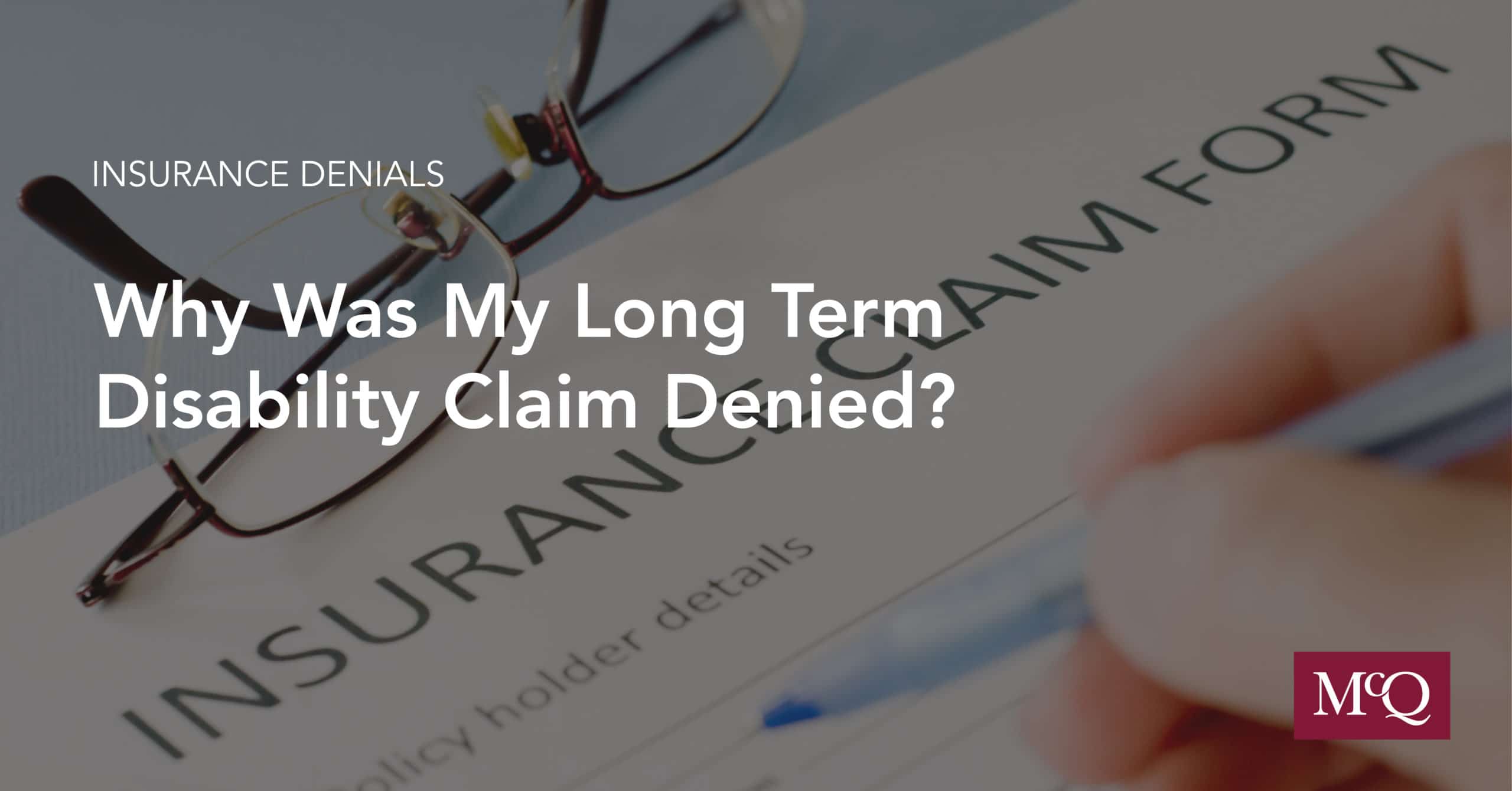Dispute Resolution & Litigation
Expropriation in British Columbia: Your Rights, Compensation, and Legal Options Explained
Share: April 7, 2025 | By Douglas J. Conolly 1. What…
Read moreLong term disability claims are often denied. Long-term disability (LTD) insurance is designed to replace a portion of your income if you become disabled and are unable to earn an income for an extended period of time. A disability can result from an injury, illness or mental health condition. Individuals often have long-term disability benefits as part of their benefits package with their employer. Self-employed individuals or contractors may have an individual long-term disability policy.

LTD benefits begin payment after a specified number of days known as an elimination period. The elimination period is set out in the long-term disability policy. Long-term disability benefits are not paid during the elimination period, though, the individual must remain disabled throughout the duration of the elimination period. Once the elimination period ends, the insurer will begin paying the insured monthly benefits. The monthly benefit payable to the insured is typically a percentage of his or her pre-disability income. This percentage is set out in each policy.
To qualify for LTD benefits, the insured must be totally or partially disabled. Each policy will have a unique definition for “total” or “partial” disability. The focus of the definition will not be on the diagnosis that the insured has received for their injury, illness, or mental health condition. Rather, the focus is on how the diagnosis impacts the individual’s functional ability to work. When adjudicating an insured’s claim for benefit, the insurance company will require evidence of an insured’s disability and how the disability impacts the insured’s function.
We have resolved many cases favourably for our clients where we have applied this legal concept. You only have a limited time to make an appeal and seek legal action. Contact our Insurance Denial lawyers today to book your free initial consultation 604.581.7001
Insurance companies often deny long term disability claims. There are six main reasons for these types of disability claim denials:
For complete details on why disability claims are denied, visit five most common reasons for insurance companies to deny disability benefits.
LTD denials can also be related to application errors or insufficient evidence, while other denials occur because the situation does not meet the criteria for an LTD claim. About two-thirds of all initial claims for disability benefits are denied, even seemingly credible ones. Here are some influencing factors for LTD claim denials:
Video surveillance may be involved as long as it does not violate your personal privacy. Recordings are allowed as long as one party is aware of the recording. An invasion of your right to privacy may occur if an investigator is snooping around your home, knocking on your door under false pretenses, i.e., pretending to be someone they are not, following you too closely in public places, or acting in an unreasonable or intrusive manner.
People usually post pictures of themselves in social situations smiling on social media. That’s because if you point a camera at someone, they are conditioned to smile – even if they are in pain. Also, someone suffering emotional trauma may not want their friends and family to know how much they are suffering – so they choose to post only content that makes them appear well.
If social media posts are produced as evidence, the weight of those images for or against the claimant case is at the judge’s discretion. Insurance companies increasingly submit evidence from social media, with the hope these posts will negate your claims. The takeaway is to be prudent about what you post on social media if you have been disabled from working as a result of an injury or illness.
The insurance company will require you to attend an independent medical examination (IME) with their doctor. The doctor will evaluate your ability to function and respond physically and/or mentally to various tasks. They may make recommendations or restrictions on your ability to perform daily activities at home, work and recreation. The IME report is often used to confirm or deny short term disability benefits, other coverage and settlements.
You should not delay in getting legal advice to clarify definitions and deadlines following an LTD denial. Speak with one of our experienced lawyers if your LTD claim is denied. You may be concerned about not having money to hire a lawyer, however, we work on contingency fee arrangements so there is no up-front cost to you; and you only pay a legal fee if the insurer pays.

Dispute Resolution & Litigation
Share: April 7, 2025 | By Douglas J. Conolly 1. What…
Read moreDispute Resolution & Litigation
Share: April 3, 2025 | By Sunny Uppal Issue estoppel is…
Read moreDispute Resolution & Litigation
Share: March 19, 2025 | Represented By Sepideh Alimirzaee In a landmark…
Read more